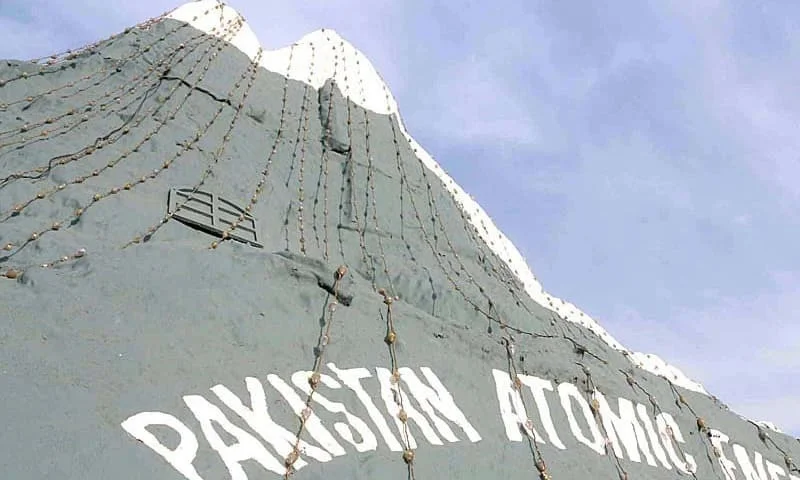
On May 28, 1998, Pakistan marked a historic milestone by successfully testing five nuclear devices in response to India’s nuclear tests earlier that month. This event, celebrated annually as Youm-e-Takbeer (Day of Greatness), signifies Pakistan’s scientific achievements and strategic resilience. The day also underscores the critical role of Pakistan’s nuclear weapons in maintaining regional stability and deterring aggression from an increasingly belligerent India.
To appreciate the significance of Youm-e-Takbeer, one must understand the historical context that compelled Pakistan to develop a nuclear weapons program. The origins of this decision trace back to the geopolitical tensions and conflicts with India, particularly over the Kashmir dispute.
The Kashmir Conflict
The seeds of discord were sown during the 1946 general elections in Kashmir, where the Muslim Conference, favoring an independent Muslim state, came to power. Despite the British plan in 1947, which envisioned Kashmir as part of the new Muslim-majority nation of Pakistan, India and Pakistan soon engaged in their first war over the region. This conflict ended with a United Nations resolution calling for a plebiscite in Kashmir—a resolution India refused to implement.
The situation escalated in 1965 when Indian troops crossed the international border into Pakistan, attempting to capture Lahore. Despite superior numbers, India could not defeat Pakistan, leading to a stalemate. This war, coupled with the loss of East Pakistan in 1971 due to Indian interference, exacerbated Pakistan’s sense of insecurity.
The Nuclear Path
In the face of these existential threats, Pakistan’s leadership saw the need for a robust deterrent. In 1964, Pakistan’s Foreign Minister Zulfiqar Ali Bhutto famously declared at the UN that Pakistan would develop a nuclear bomb if India did. This resolve was tested in 1974 when India conducted its first nuclear test, code-named “Smiling Buddha.” Bhutto’s response was unequivocal: “We will build the bomb even if we have to eat grass”. One of his comrades, Dr Anwar Sajjad, presented a simpler version; “Rukhi Sukki Khain Gay Atom Bomb Babain Gay”, (We will survive on the bare minimum but will build the bomb).
The realization of this goal became imperative in the wake of India’s Pokhran-II tests on May 11, 1998. These tests heightened the sense of vulnerability in Pakistan, especially given the ongoing conflict in Kashmir. With tensions escalating, Pakistan had little choice but to respond.
Chagai-I: Pakistan’s Nuclear Test
On May 28, 1998, despite immense international pressure, Pakistan conducted its own nuclear tests in the Chagai district of Balochistan. These tests not only demonstrated Pakistan’s scientific prowess but also established it as a formidable nuclear power, effectively deterring any aggressive designs by India.
Celebrating Resilience and Scientific Achievement
Youm-e-Takbeer is a testament to Pakistan’s resilience and its unwavering commitment to national security. By joining the ranks of nuclear-armed states, Pakistan ensured that the threat of a full-scale war with India became redundant. Despite India’s substantial military buildup during Operation Parakram in 2001, the nuclear deterrence established by Pakistan has maintained a precarious peace.
Pakistan’s development of advanced nuclear capabilities, such as the Nasr short-range missile, has further strengthened its security posture. This missile, designed to counter India’s Cold Start Doctrine, exemplifies Pakistan’s strategic foresight and technological advancement.
While Pakistan’s nuclear program has been a stabilizing force, India’s actions have contributed to an arms race in the region. According to the Stockholm International Peace Research Institute (SIPRI) 2018 report, India is the world’s largest arms importer, developing a sophisticated arsenal that includes tactical weapons, intercontinental ballistic missiles, and an anti-ballistic missile system.
India’s ambitions to achieve regional power status, coupled with its aggressive posturing, have created a security dilemma for Pakistan. Despite Pakistan’s efforts to promote arms control through proposals such as declaring South Asia a nuclear weapon-free zone and establishing a strategic restraint regime, India’s rejection of these initiatives has left Pakistan with no choice but to maintain and enhance its nuclear capabilities.
In contrast to India’s aggressive buildup, Pakistan has established itself as a responsible nuclear state. Its comprehensive and effective national nuclear security regime meets international standards, as evidenced by the Nuclear Threat Initiative (NTI) 2020 report. Pakistan’s credentials as a responsible nuclear power are well-established, with strict adherence to safety protocols and international guidelines.
India, on the other hand, has faced numerous nuclear security lapses. Incidents such as the unauthorized seizure of over 7 kg of natural uranium highlight significant gaps in India’s nuclear safety. Moreover, the poor state of security at India’s nuclear facilities raises concerns about the potential for nuclear material to fall into the wrong hands.
Additionally, India has experienced a series of accidents involving military equipment, particularly aircraft capable of carrying nuclear weapons. For instance, the explosion aboard the INS Sindhurakshak in August 2013, which resulted in the death of 18 sailors and the sinking of the vessel, underscores the risks associated with India’s nuclear arsenal.
Youm-e-Takbeer is a celebration of Pakistan’s scientific achievements and strategic resilience. The decision to develop nuclear weapons was driven by the need to counter India’s aggression and ensure national security. Despite India’s ongoing arms race and belligerent policies, Pakistan’s nuclear capabilities have maintained regional stability and deterred external threats.
As Pakistan commemorates the anniversary of its nuclear tests, it reaffirms its commitment to peace and stability. The responsible management of its nuclear arsenal, coupled with continuous advancements in nuclear technology, underscores Pakistan’s role as a stabilizing force in South Asia. By celebrating Youm-e-Takbeer, Pakistan not only honors its scientific achievements but also reasserts its resolve to protect its sovereignty and maintain strategic balance in the region.
The opinions shared in this article reflect the author’s personal views and do not necessarily align with the institution’s official stance.



















Leave a Reply